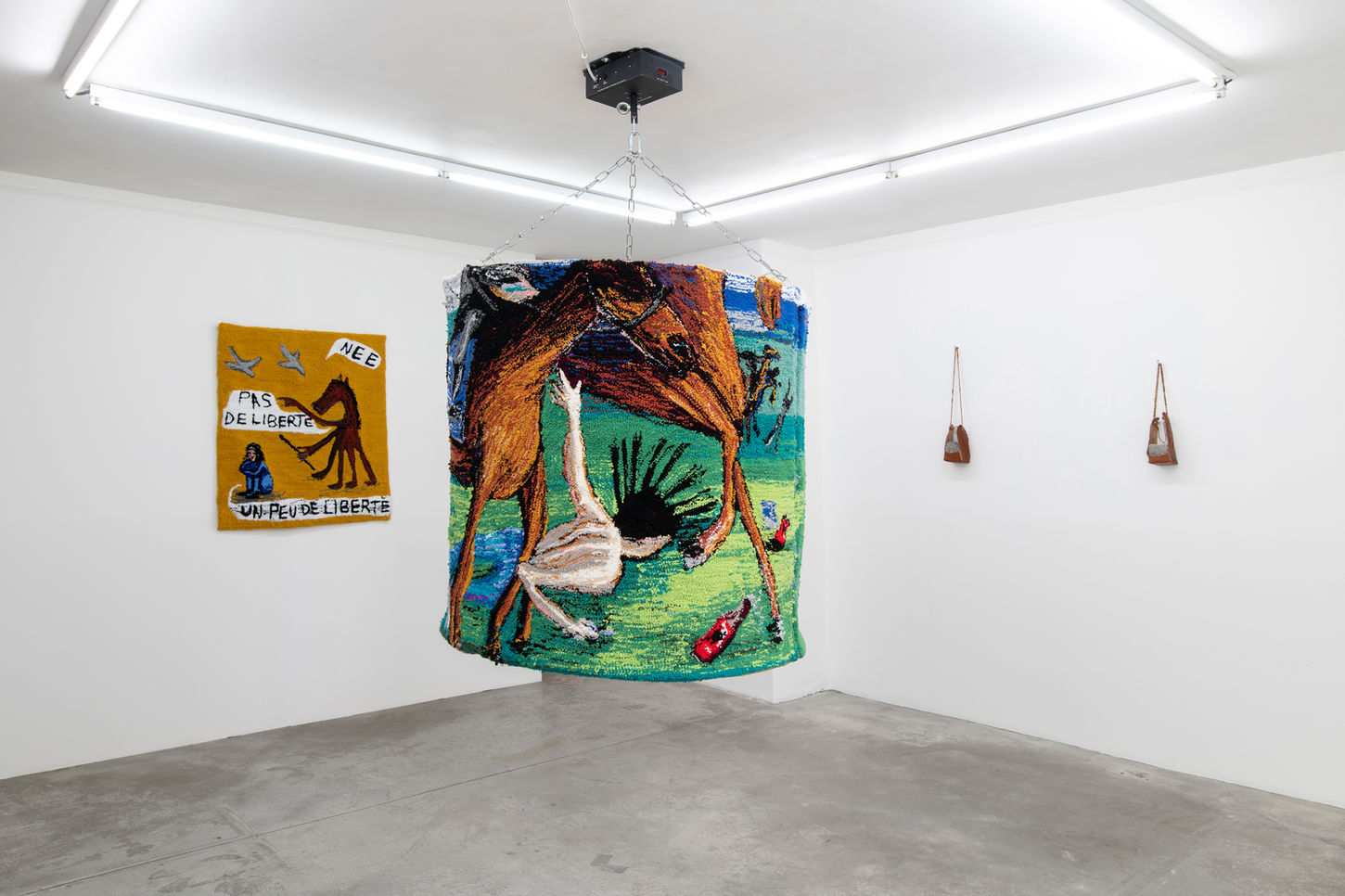
Works
“What do you feel when you know the horses are coming?” Elen Braga asks. I try to come up with an answer, but I mostly make frightened movements. Tension and unrest, or some such thing? I can't seem to explain. I am thinking about unfulfilled expectation. Suspense without climax. I see a graph in which a line at the top runs endlessly straight ahead. Vigilance must be maintained, for danger is lurking. "The Horses Are Coming" is a warning: the worst is yet to come. These are the words of the one who is threatened.
"The Horses Are Coming" arose from "Carousel" (2021), a work in which Elen Braga references the Brussels festival La Boum. That started out as a joke but grew into an illegal gathering of youngsters reclaiming their freedom during the Covid lockdowns and ended in aggressive police action. Horses were deployed to disperse the youngsters, resulting in violent clashes between protestors and police. Elen Braga consequently associates horses with state power. However, the story behind La Boum is complex, as are the underlying power relations. Demonstrating for freedom, in that context, also threatened freedom by risking further proliferation of the pandemic. Among the people who made a point of joining the protest, a majority came from privileged backgrounds and considered freedom to be an obvious right. In that sense the protest was not so much for the common good as it was for personal interest. The restrictive measures against which the youngsters were fighting had been issued by government. To enforce the rules, the government used the police, who in turn used horses as a deterrent and a threat. The real power apparatus is thus invisible and the role of the horse is situated between ruler and subject.
This ambiguity is also present in the way Elen Braga introduces herself in her work. In her recognisable blue catsuit, she assumes postures that sometimes remind us of superheroes, sometimes of victims. Some poses make her look powerful, but also place her in the position of a warrior and thus subordinate to a ruler. For example, the choreography in the video "The Horses Are Coming" (2022) refers to festival-goers during La Boum. We see movements of active resistance, but also gestures suggesting defeat. In "Un peu de liberté" (2022) we find the artist huddled in a corner. In a mixture of French and Dutch, she negotiates with a horse about the possession of freedom. There is something naive and childlike about the scene, but the harsh reality is that it refers to a traumatic childhood memory. With her naive, colourful and often cheerful imagery, Elen Braga successfully deceives the viewer. The social dimension is presented in a light-hearted way. In "The Beast" (2022), she even draws the visitor into this game.
The two-headed horse that invites us for a ride seems innocent, but it refers to stately equestrian statues of historical leaders. As I look at her sculpture with amusement, I realise that sitting on it has a strong impact on my perspective. Here, Elen Braga offers the visitor the opportunity to change sides. After waiting anxiously for the horses, I can now decide to become part of the threatening herd myself. As a rider, I tower high above the figure sitting on the ground in "Un peu de liberté", and I immediately experience a (perverse?) sensation of power. And yet it feels too easy, I feel like a coward.
If I make the choice to mount the animal, does that make me an authority figure or am I merely accepting the authoritarian system that is being presented to me? Am I protecting myself by frightening others? Elen Braga not only shows herself in different positions of power, but she also takes me through the different ranks. Becoming a rider does not mean being free from fear. "The Horses Are Coming" starts from the point of view of the combative citizen, but then reveals the nuances of power relationships and eventually tempts us to assume an authoritarian role ourselves. In the end, the tension remains, only the roles are redistributed.
Text by Ilse Roosens, curator at Mu.ZEE Ostend, BE
April 23 - June 4, 2022
BRUSSELS
The Horses Are Coming
Elen Braga


















































